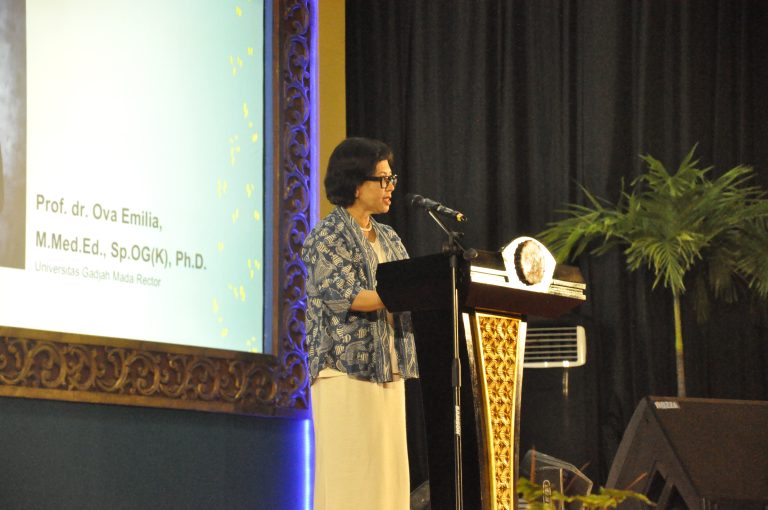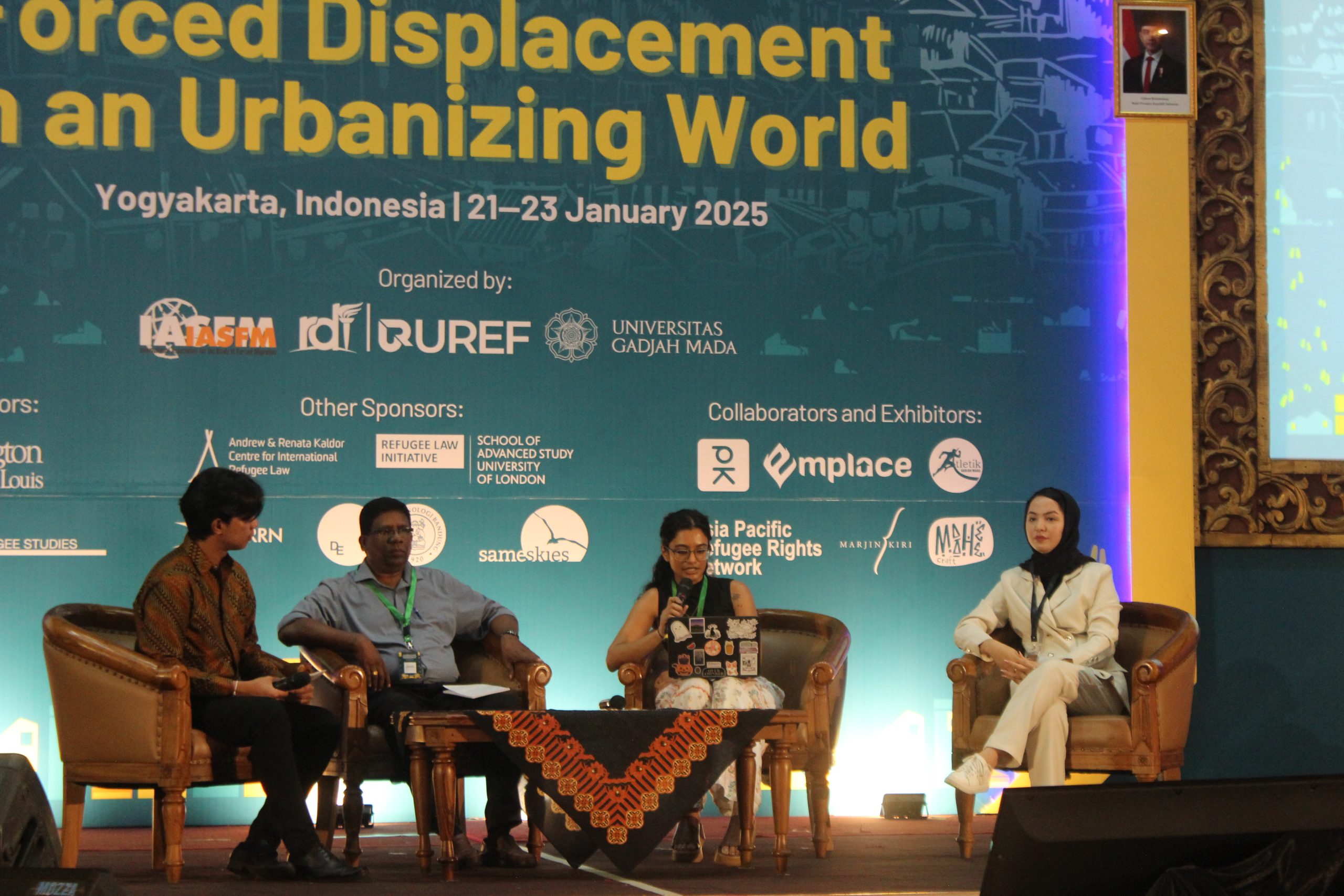
Yogyakarta, 21/1/2025 – The first day of the 20th International Conference of the International Association for the Study of Forced Migration (IASFM20) was held on Tuesday, January 21, 2025 at Gadjah Mada University in Yogyakarta. A series of agendas on the first day included welcome speeches, public lectures, plenary sessions, creative presentations, various parallel sessions, the IASFM General Meeting, and dinner together.

Department of Anthropology UGM Documentation
After the opening ceremony held at Grha Sabha Pramana, the agenda continued with a public lecture entitled “International Migration and Forced Displacement in the Southeast Asia Region” delivered by Prof. Dr. Tri Nuke Pudjiastuti, M.A., a professor specializing in national security and strategic issues in Indonesia. She holds a key position at the Center for Political Research, National Research and Innovation Agency (BRIN), where she has dedicated her career to migration, human security, and international relations, particularly in the Southeast Asia region. Prof. Pudjiastuti is a recognized expert in the field of forced migration and human smuggling. Her research significantly influences policy-making and academic discourse on these issues.
After a coffee break, there was a plenary session with the topic “Reflection on the Global Agenda for International Migration”. The plenary session began with the presentation of “Global Migration Agenda and Realities in Southeast Asia” which examined the relationship between the global migration agenda and the reality on the ground in Southeast Asia. The presentation investigated the impact of ASEAN migration and asylum policies (or lack thereof) on the protection of migrants’ rights, debates on order and disorder in the Southeast Asian context with a particular focus on how ASEAN dealt with migrants from Myanmar after the February coup and the issue of transnational repression. The presentation concludes with some thoughts on rethinking the implications of ASEAN’s lack of migration governance and commitment to migrant rights protection in the region. The presentation was delivered by Dr. Sriprapha Petcharamesree, an expert in human rights, ASEAN/SEA studies, migration, citizenship, business and human rights, and international relations.
The second presentation was delivered by Prof. Ranabir Samaddar, an Indian political scientist who serves as Distinguished Chair in Migration and Forced Migration Studies at the Mahanirban Calcutta Research Group. He presented the material with the title “Protection as Punishment” which in his explanation, Prof. Ranabir Samaddar revealed that the figure of refugees in certain situations represents illegal existence – which is “legally” deprived of rights, modes of mobility, and resources. Humanity in such conditions binds this illegal figure to the state for the continuation of illegal or semi-legal life. Sovereignty is restored by neoliberalism in this way. Digital and other modes of control are used. And, remember, here too, the reason at the beginning is always protection. Indeed, the global compact’s push to use new technologies to protect refugees and migrants is loud and clear.
In the last keynote, Dr. Susan Banki, an expert in political, institutional, and social affairs, explained the roots of and solutions to human rights violations and social justice abuses, delivering a keynote entitled “What Refugee Activists Contribute to Global Protection Regimes”. According to her, the global migration agenda, processes, and actors associated with it can be distinguished from the Global Protection Regime which unequivocally prioritizes the protection of migrant populations over the control of them. In this material, Dr. Susan Banki shows that migrants and refugees play an important role in forms of activism that advance the Global Protection Regime.
As the first day of the 20th IASFM International Conference at Universitas Gadjah Mada comes to a close, the in-depth discussions have opened a portal for further collaboration on regional and global forced migration issues. Participants, whether they are researchers or individuals interested in the topic, not only gained new insights from renowned experts, but were also invited to reflect on the role of policy, technology and activism in creating more inclusive and equitable protection systems for migrants and refugees.
[Public Relation of Faculty of Cultural Sciences, Muhammad Ebid El Hakim]

